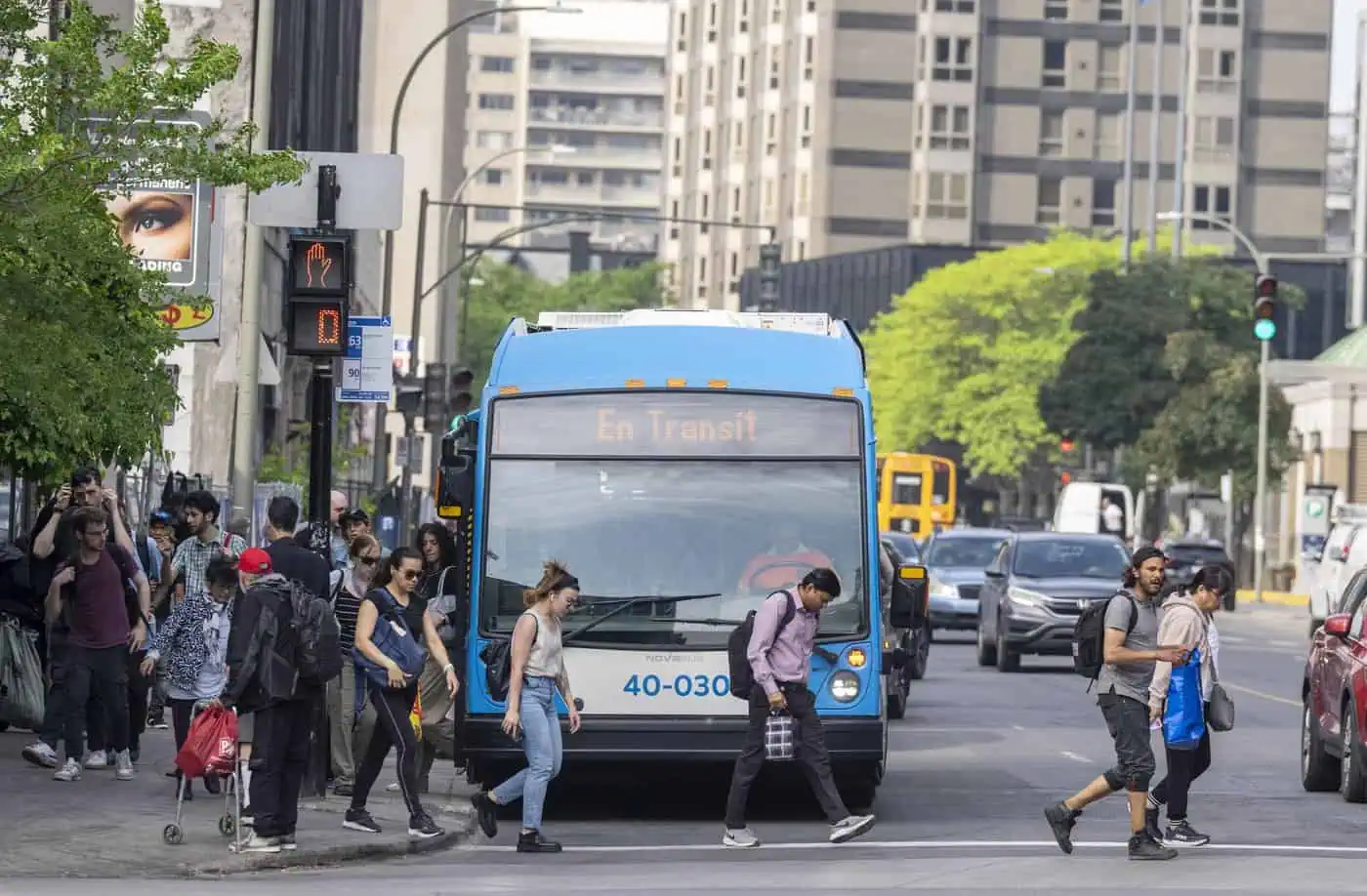A new wave of U.S. tariffs on buses, set to take effect this weekend, could force Canadian cities to hike property taxes, transit fares, parking fees, and possibly introduce congestion charges, according to municipal and transit leaders.
The 10 per cent duty — part of U.S. President Donald Trump’s tariff package on heavy and medium-sized trucks — is being imposed on buses under the justification of national security concerns. The move threatens to upend municipal budgets across North America, where transit systems depend heavily on cross-border vehicle manufacturing.
“The bus manufacturing industry is highly integrated between Canada and the U.S., with parts crossing the border multiple times,” explained Josipa Petrunic, CEO of the Canadian Urban Transit Research & Innovation Consortium (CUTRIC).
“If every mayor in North America is not peeing themselves right now, they really should be,” Petrunic said bluntly. “Overnight, mayors just woke up and every bus they have in the pipeline — even if they’ve already signed the contract — just got up to 10 per cent more expensive.”
She noted that a hybrid bus costs around $900,000, while an electric bus can reach $1.3 million, meaning the new tariffs could add hundreds of thousands of dollars per vehicle.
Ripple Effects for Cities and Riders
The additional costs will ultimately trickle down to municipalities already struggling with budget pressures, Petrunic warned. Cities could be forced to raise property taxes, transit fares, or parking fees to offset the higher costs of fleet replacements and maintenance.
Rebecca Bligh, president of the Federation of Canadian Municipalities (FCM), echoed the alarm, saying the tariffs will directly affect Canadians by driving up the cost of public transit and threatening thousands of manufacturing jobs.
“Higher costs mean fewer new buses, slower progress toward cleaner fleets, and the risk of service cuts or fare hikes,” Bligh said in a statement. “For communities already facing rising infrastructure costs, this adds pressure at a time when reliable, accessible transit is more important than ever.”
Industry Impact and Calls for Action
Canada’s bus manufacturing industry, which employs about 25,000 people, is already reeling from earlier U.S. tariffs on steel and aluminum. The country’s major manufacturers — New Flyer (Winnipeg), Nova Bus (Saint-Eustache, Que.), and Gillig (California) — dominate the North American market.
New Flyer, owned by NFI Group, said it is “carefully reviewing the details” of the new tariffs and assessing their impact on production and pricing.
Petrunic urged Ottawa to make bus manufacturing a priority in upcoming trade negotiations, warning that without support, the tariffs could delay Canada’s transition to cleaner, electric transit fleets and undermine years of investment in green transportation.
“These tariffs don’t just hit buses,” she said. “They hit climate goals, workers, and the affordability of public transit for everyday Canadians.”

